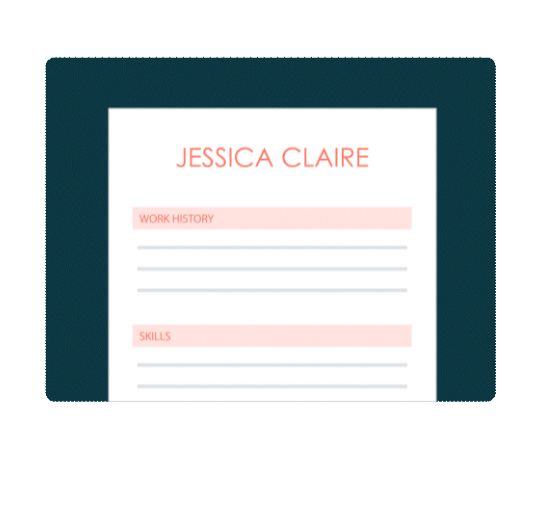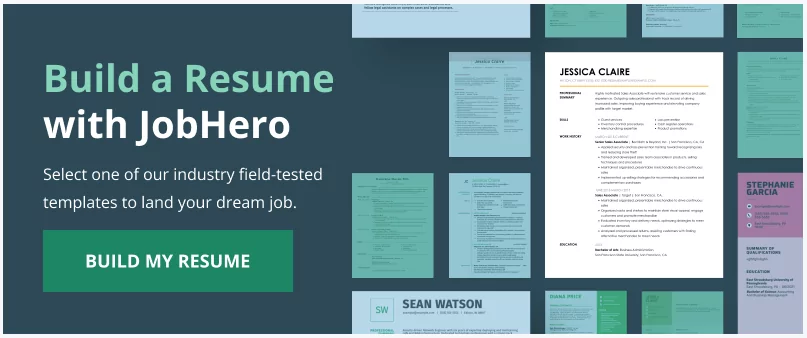What is a Data Modeler?
Data Modelers are Systems Analysts who design computer databases that translate complex business data into usable computer systems. Data Modelers work with data architects to design databases that meet organizational needs using conceptual, logical, and physical data models. Their models are designed to improve efficiency and outputs, and may focus on issues such as reducing data redundancy or improving data movement across systems.
Data Modelers work as part of team with other database administrators and data architects, usually as an employee of a large company or organization. Jobs for Database Administrators, including Data Modelers, are expected to grow in the coming years as the data needs of all companies continue to grow.
Interested in a cover letter? Our cover letter builder walks you step-by-step through the process of writing your own. With pre-written text suggestions for every section of your letter, writer's block will be a thing of the past.

Create your professional resume in just minutes.
- Choose from 20+ recommended templates
- Add pre-written experiences, skills and summary
- Download and send
Data Modeler Duties and Responsibilities?
Identify Business Needs
Create and Maintain Data Models
Set Standards
Make Recommendations
Data Modeler Skills
An ideal Data Modeler is an analytical and creative thinker who is not intimidated by roadblocks and challenges. They understand how to successfully evaluate problems and develop appropriate solutions. Successful Data Modelers can also be counted on to perform well under pressure, possessing great focus while completing projects efficiently. They should be able to work well as part of a team, but also carry responsibility for their own work. Data Modelers also need to be able to work on multiple projects at a time, with the ability to quickly understand and incorporate new technologies. Below are some other skills and abilities that employers look for in a Data Modeler.
Core skills Based on job listings we looked at, employers want Data Modelers with these core skills. Any aspiring Data Modeler should have these things on their resume.
- Expertise in data modeling principles/methods including conceptual, logical & physical Data Models
- Ability to clearly communicate complex technical ideas, regardless of the technical capacity of the audience
- Strong inter-personal skills and ability to work as part of a team
- Knowledge of the mathematical foundations of statistical inference and forecasting such as time series analysis, multivariate analysis, cluster analysis, and optimization
- Ability to quickly learn and adapt modeling methods from case studies or other proven approaches
Advanced skills While most employers did not require the following skills, multiple job listings included them as preferred. If you can claim these skills, you will make a great candidate for a Data Modeler.
- Software Development experience
- Ability to utilize Business Intelligence tools (Power BI) to represent insights
- Experience working with dimensionally modeled data
- Experience in translating/mapping relational data models into XML and Schemas
Tools of the Trade In their jobs, Data Modelers make use of a lot of high-tech tools to get the job done. Here are some of the tools that employers are looking for Data Modeler applicants to have experience with.
- Data analysis and modeling tools (e.g. Power Designer, ERWin, ER/Studio)
- SQL and/or PL/SQL
- RDBMS platforms (e.g. SQL Server, Oracle, Netezza, Teradata, DB2 / UDB)
- Microsoft Excel, Word, Power Point and Visio
GO PRO
Choose from fully customizable
GET PAST THE BOTS
Ensure compatibility with Applicant Tracking Systems
LOOK YOUR BEST
Save time with sleek and stylish professional design templates

Data Modeler Salary
Data Modeler Resources
We combed he web to find the very best resources to help you determine if Data Modeler is the job for you. Check out these links for information and opportunities in Data Modeling.
On the Web
ThatJeffSmith.comThis blog has a lot of helpful industry info, but it also has a resource page just for Data Modeling, with links to all kinds of helpful resources.
The Data WarriorThis speaker and Data Modeler, Kent Graziano, gives his two cents on the ins and outs of the job.
Toad Data Modeler CommunityThis online community of Data Modelers is a great place to learn from experts and connect with others in the field.
Industry Groups
DAMA InternationalThis global data management organization provides learning and career networking opportunities around the world.
Data Governance Professionals OrganizationDGPO focuses on advancing the discipline of data governance, part of the responsibility of a Data Modeler. They have a mailing list and hold events throughout the year.
Data Modeler Books
Data Modeling Made Simple: A Practical Guide for Business and IT Professionals, 2nd EditionAn easy to read introduction into data modeling, this book is a great entry point into the complex world of data modeling.
Data Modeler’s Workbench: Tools and Techniques for Analysis and DesignThis book provides some more advances tips and tricks to perfect the art of data modeling and database design.
The Data Model Resource Book, Vol. 1: A Library of Universal Data Models for All EnterprisesWhile this 3volume tome may seem like a behemoth, these reference books are the simplest way to get answer for any data modeling questions for any kind of business need.
Data Modeler Resume Help
Explore these related job titles from our database of hundreds of thousands of expert-approved resume samples:



